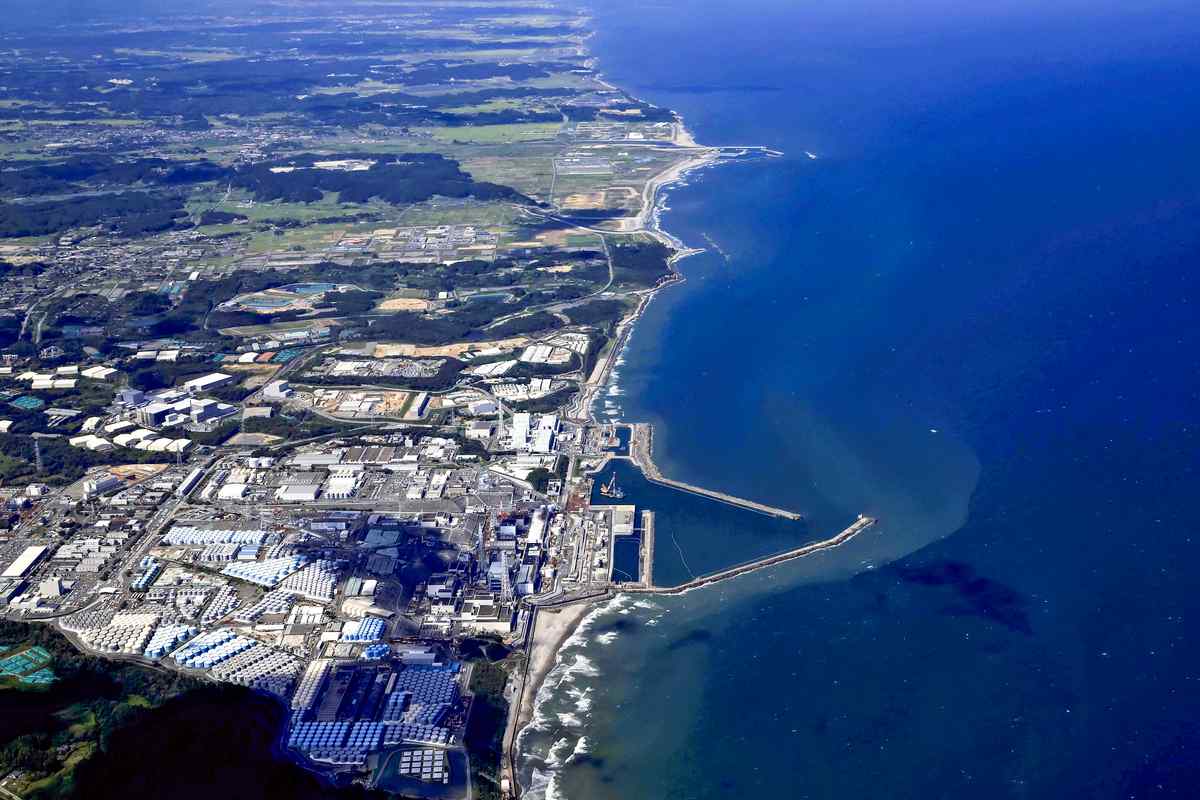North Korea Incited Anti-Japan Activities in South Korea; Court Documents Show Directives to Fuel Protests, Division

Fukushima No. 1 nuclear power plant
16:59 JST, January 9, 2025
SEOUL ― North Korea ordered its spy network in South Korea to incite anti-Japanese activities regarding the release of treated water from the Fukushima No.1 nuclear power plant, The Yomiuri Shimbun has learned.
The Yomiuri Shimbun obtained the text of a South Korean court ruling in which many of these directives were used as evidence. The ruling shows that North Korea has been stirring up division within South Korea, as well as tension between Japan and South Korea, by taking advantage of anti-Japanese momentum in South Korea.
Last November, the Suwon District Court in South Korea sentenced three men to five to 15 years in prison for violations of the National Security Act, including espionage. According to the ruling, the three men — who belonged to North Korean espionage network — collected information regarding U.S. military bases in South Korea at the order of North Korea’s Cultural Exchange Bureau, which is part of DPRK’s intelligence network.
The Cultural Exchange Bureau, formerly known as the 225th Department, is part of the Korean Worker’s Party and is responsible for overseeing spy agents and nurturing collaborators in South Korea.
The Yomiuri Shimbun applied to the court to obtain all 468 pages of the ruling documents, and analyzed 89 written directives sent from North Korea to its espionage organization in South Korea, and 13 reports sent to North Korea from the organization. Parts of the documents that were withheld from the public were supplemented by coverage of the trial.
According to the ruling, a man in his 50s who held a leadership-level position in the espionage organization was the director in charge of overseeing organizations under the umbrella of the Korean Confederation of Trade Unions, South Korea’s largest labor union with about 1.2 million members.
The espionage organization had a “board of directors,” which issued instructions to subordinate members based on orders from North Korea. Communication with North Korea took place about one to five times every month from October 2018 until just before the investigation went into full swing in January 2023. This is the largest number of espionage cases ever uncovered.
According to a directive adopted as evidence in the ruling, the order regarding the release of treated water from the Fukushima plant came in early May 2021, about 20 days after the Japanese government officially decided to release the water into the ocean.
It specifically directed operatives to “stir anti-Japanese public opinion and drive the confrontation between Japan and South Korea into an irreversible situation.” It also told them to “focus on disseminating information that condemns [release of the water] as an act of nuclear terrorism.”
At the time, relations between Japan and South Korea remained cold as South Korea’s Moon Jae-in administration did not offer a solution to the issue of former wartime requisitioned workers from the Korean Peninsula.
The directive said anti-Japanese sentiment was notably growing fast at various levels of South Korean society. “It is effective to formulate a tactical plan to intensify Japan-South Korea confrontations and vigorously implement it,” it said, and told its people to “boldly deploy protest rallies around the Japanese Embassy and engage in struggles such as the burning of Japanese products.”
In fact, protests by civic groups became active around that time, and these groups and others held daily demonstrations against the release of treated water ahead of the opening ceremony of the Tokyo Olympics in July 2021.
When the Japanese government imposed strict export controls on South Korea, as a de facto countermeasure against the Moon administration’s handling of the issue of the former wartime requisitioned workers, North Korea instructed its operatives to organize protests at the Japanese Embassy.
Of 89 directives, 34 were for “anti-conservative, anti-U.S., and anti-Japanese” actions, accounting for 38% of the total. The second largest number, 17, were related to the “South Korean presidential election, general election and labor union activities in South Korea.”
Reports included the telephone numbers of all the South Korean lawmakers who had won in the general election held in April 2020.
The three defendants, all labor union executives, are appealing their conviction in the first trial.
Top Articles in World
-

China Confirmed to Be Operating Drilling Vessel Near Japan-China Median Line
-

China Eyes Rare Earth Foothold in Malaysia to Maintain Dominance, Counter Japan, U.S.
-

Japan, Qatar Ministers Agree on Need for Stable Energy Supplies; Motegi, Qatari Prime Minister Al-Thani Affirm Commitment to Cooperation
-

North Korea Possibly Launches Ballistic Missile
-

10 Universities in Japan, South Korea, Mongolia to Establish Academic Community to Promote ICC Activities, Rule of Law
JN ACCESS RANKING
-

Univ. in Japan, Tokyo-Based Startup to Develop Satellite for Disaster Prevention Measures, Bears
-

JAL, ANA Cancel Flights During 3-day Holiday Weekend due to Blizzard
-

China Confirmed to Be Operating Drilling Vessel Near Japan-China Median Line
-

China Eyes Rare Earth Foothold in Malaysia to Maintain Dominance, Counter Japan, U.S.
-

Japan Institute to Use Domestic Commercial Optical Lattice Clock to Set Japan Standard Time






















